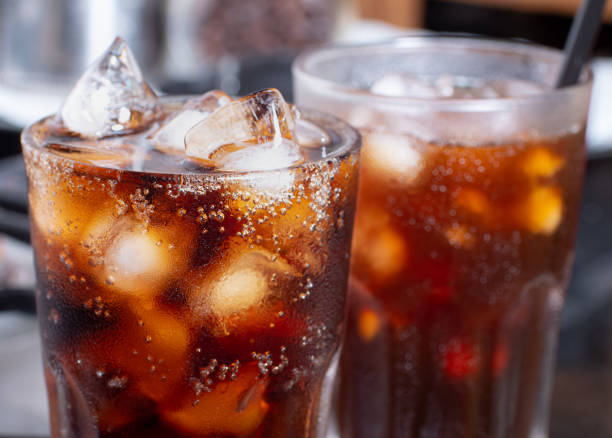Diet Coke, introduced in 1982, has long been a staple of American culture, initially targeting health-conscious consumers, particularly women. Over the decades, its branding and consumer base have undergone significant transformations. Today, Diet Coke is not only associated with fashion-forward individuals but also stands as a symbol of masculinity, embraced by powerful figures in politics and business.
The Feminine Beginnings
At its inception, Diet Coke was marketed primarily to women. The brand’s advertising campaigns in the 1980s and 1990s featured glamorous female celebrities and targeted those concerned with fitness and appearance, aligning with the era’s “yuppie” lifestyle. This approach positioned Diet Coke as a chic, low-calorie beverage choice for women.
One of the most iconic campaigns was the “Diet Coke Break” series, which began in 1994. These advertisements depicted groups of women taking breaks to watch attractive men, such as construction workers or delivery men, enjoying a Diet Coke. The commercials played on role reversal, showcasing women objectifying men, a notable shift in advertising narratives at the time.
Shifting Towards a Unisex Appeal
Despite its strong association with female consumers, Coca-Cola recognised the potential to expand Diet Coke’s appeal to a broader audience. In the early 2000s, the company attempted to create a unisex appeal for the brand, moving away from exclusively feminine marketing strategies. This shift aimed to attract male consumers who may have previously perceived diet sodas as feminine.
However, this strategy faced challenges. Research indicated that men often preferred products not associated with women, a phenomenon known as “gender contamination.” Brands traditionally linked to female consumers struggled to gain acceptance among men, highlighting the complexities of rebranding efforts.
The Rise of Coke Zero
To specifically target male consumers, Coca-Cola introduced Coke Zero in 2005. This product offered a similar taste to regular Coke but with zero calories, and its marketing campaigns were distinctly masculine. The launch of Coke Zero acknowledged the challenges of repositioning Diet Coke for men and provided an alternative that resonated more with male consumers.
The Masculine Rebranding of Diet Coke
In recent years, Diet Coke has experienced a resurgence among male consumers, particularly high-profile figures. Former U.S. President Donald Trump is known for his love of Diet Coke, reportedly consuming several cans daily and even installing a button in the Oval Office to summon the beverage. Similarly, tech entrepreneur Elon Musk has publicly expressed his preference for Diet Coke, further associating the brand with powerful, hard-charging men.
This shift aligns with a broader cultural trend that food and beverage analyst Andrea Hernández describes as “cocaine-induced opulence.” This trend celebrates stimulant-fuelled productivity and echoes the excesses of 1980s Wall Street culture. Diet Coke’s zero-calorie, caffeinated formula fits seamlessly into this narrative, symbolising a lifestyle that prioritises efficiency and high performance.
Nostalgia and Modern Office Culture
Diet Coke’s evolution also taps into a sense of nostalgia among consumers, particularly those who romanticise the aesthetics and culture of the 1980s. The brand’s association with that era’s corporate ambition and opulence appeals to younger generations seeking to emulate the perceived glamour and success of the past.
Moreover, Diet Coke has become emblematic of modern office culture. Its caffeine content provides a stimulant effect favoured in high-pressure work environments, making it a popular choice among professionals seeking a quick energy boost without the sugar crash associated with other sodas. This practicality has further solidified its status as a beverage of choice for those leading demanding lifestyles.
Marketing Campaigns Reflecting the Shift
Recognising this shift in consumer demographics, Coca-Cola has adapted its marketing strategies. In recent years, campaigns have featured male celebrities, such as actor Jamie Dornan, aiming to broaden Diet Coke’s appeal and reflect its evolving consumer base. These campaigns signify the brand’s acknowledgement of its diverse audience and its efforts to remain relevant in a changing market.
Conclusion
Diet Coke’s journey from a beverage primarily marketed to women to one embraced by powerful men illustrates the dynamic nature of branding and consumer perception. By adapting its marketing strategies and acknowledging cultural shifts, Diet Coke has maintained its relevance and continues to be a significant player in the beverage industry. Its evolution reflects broader societal changes and underscores the importance of aligning branding efforts with the values and identities of a diverse consumer base.
References
• Fung, K. (2025, March 1). Diet Coke, Longtime Favorite of ‘It Girls,’ Is New Symbol of Masculinity. Newsweek.
• A Complete List of Vintage Diet Coke Ads & Slogans. History Oasis.
• Diet Coke Break. Wikipedia.
• Diet Coke’s Campaign By Droga5 Gets Aesthetic Inspiration From the 80s and 90s. Print Magazine.
• Diet Coke’s glistening, hazy, very 80s campaign by Droga5 radiates confidence. It’s Nice That.
• Elon Musk highlights Trump’s affair with Diet Coke. The Tribune.
• Diet Coke looks to past to retain ‘lifestyle’ status. Marketing Week.
• The Extraordinary Story of How Diet Coke Came to Be. The Coca-Cola Company.
• Diet Coke. Wikipedia.
• Diet Coke is a symbol of modern office culture. Financial Times.


